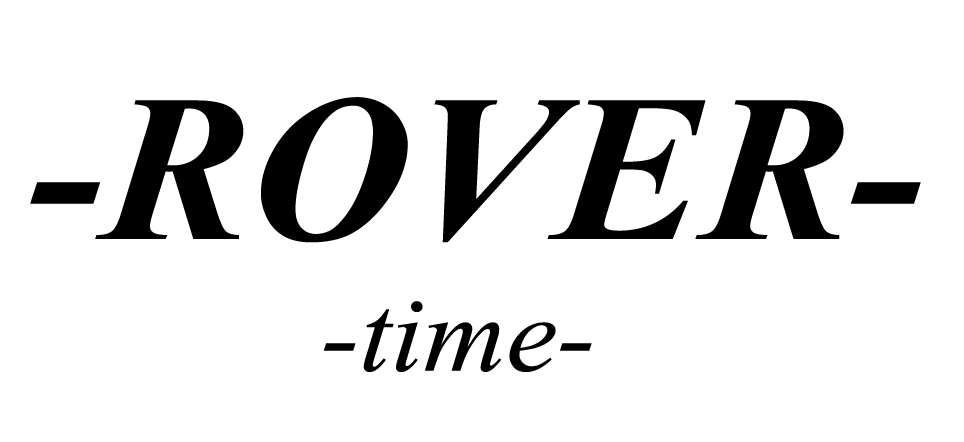What Is a Creditor, and What Happens If Creditors Aren’t Repaid?

Creditors are the current liabilities of the company, whose debt is to be paid within one year. They are called as current liabilities because they provide credit for a limited time and hence, they should be paid, shortly. insurance plans Creditors allow a credit period, after which the company has to discharge its obligation. But, if the company fails to pay the debt within the stipulated time, then interest is charged for delayed payment.
A higher credit score indicates you’re more likely to make on-time payments than someone with a lower credit score. Three major credit bureaus—Experian, TransUnion and Equifax—create consumer credit reports based on borrowing and repayment data that’s voluntarily reported by creditors. Checking your credit reports is often one of the first steps lenders, credit card issuers and other creditors take when evaluating your creditworthiness and deciding whether to extend credit to you. A creditor often seeks repayment through the process outlined in the loan agreement. The Fair Debt Collection Practices Act (FDCPA) protects the debtor from aggressive or unfair debt collection practices and establishes ethical guidelines for the collection of consumer debts.
The Federal Reserve is expected to raise interest rates on Wednesday, the latest in a series of increases that have squeezed the budgets of debt-laden Americans, while rewarding those with money to stash in savings. CreditWise Alerts are based on changes to your TransUnion and Experian® credit reports and information we find on the dark web. Our content is not intended to provide legal, investment or financial advice or to indicate that a particular Capital One product or service is available or right for you. For specific advice about your unique circumstances, consider talking with a qualified professional. GoCardless helps you automate payment collection, cutting down on the amount of admin your team needs to deal with when chasing invoices. Find out how GoCardless can help you with ad hoc payments or recurring payments.
What is the Difference Between Debtors and Creditors?
Debtors affect the Current ratio as they form part of the current assets in the Balance Sheet. When people talk about creditors, they typically mean financial institutions like banks or credit card issuers. This type of creditor often uses some type of approval process to determine a borrower’s eligibility for their financial products. They may enter into legally binding contracts with the party that’s borrowing money. These agreements may contain loan terms and conditions, such as repayment timelines, APR fees and more.
On the company’s balance sheet, the company’s debtors are recorded as assets while the company’s creditors are recorded as liabilities. Debtors – A person or a legal body that owes money to a business is generally referred to as a debtor in the eyes of that business, as he or she owes the money. For a business, the amount to be received is usually a result of a loan provided, goods sold on credit, etc. Secured creditors are typically senior banks (or similar lenders) that provide low-interest loans with requirements of the borrower to pledge a certain amount of assets as collateral (i.e. lien).
- Generally, debtors owe a lump sum (the debt), which is split up into monthly repayments over a predetermined period until the debt is finally paid off.
- Assuming that the business is buying its raw material from a supplier on a regular basis, and then adding some value to them and manufacturing a finished product for the market.
- Real creditors are banks or finance companies with a legal contract.
- If the debtor fails to pay on time, the creditor may report that, too, which can damage the debtor’s credit score.
- If you’re unlikely to recover an old debt, it becomes ‘bad debt’ which may need to be written off.
Creditors decide whether to approve you for credit based on your borrowing record. If you have a reliable record managing credit, you are said to have “good credit,” and creditors may consider you a creditworthy borrower. It’s important that a business also looks at debtors as an aged debtor report. If you’re considering lending money to someone else, whether it’s someone you know or a stranger, think carefully about their ability and willingness to repay the debt.
Online accountancy services
Also, an airtight credit policy can help ensure that you’re only extending credit to businesses that can make your repayment schedule. As a debtor, it’s essential to maintain good relations with your creditors. Poor accounts payable practices can lead to reputational damage, causing vendors and suppliers to avoid working with you. Furthermore, there’s the potential issue of late payment interest, which can hurt your company’s bottom line. Ensure you’re maintaining a robust accounts payable process, negotiate longer credit terms (where possible), and build strong working relationships with suppliers. A debtor is a person or enterprise that owes money to another party.
In some bankruptcy cases, all of the debtor’s non-essential assets are sold to repay debts, and the bankruptcy trustee repays the debts in order of their priority. While much of debtor-creditor law focuses on bankruptcy proceedings, it also governs the ways a creditor can seek debt repayment from a non-insolvent debtor. Creditors seeking repayment can utilize either the court system or private sector debt collectors.
What is the main advantage of the debtors?
You can also visit AnnualCreditReport.com to learn how to get free copies of your credit reports. Creditors could also report a debtor’s payment history to the major credit reporting agencies—Experian®, TransUnion® and Equifax®. Any party that lends money to another party may be considered a creditor. Banks, mortgage lenders, car dealers or even family members or friends could act as creditors.
‘Fraud, dishonesty, incompetence’: See judge’s harsh words in Burt Marshall’s $90 million bankruptcy – syracuse.com
‘Fraud, dishonesty, incompetence’: See judge’s harsh words in Burt Marshall’s $90 million bankruptcy.
Posted: Thu, 03 Aug 2023 10:00:00 GMT [source]
Offer pros and cons are determined by our editorial team, based on independent research. The banks, lenders, and credit card companies are not responsible for any content posted on this site and do not endorse or guarantee any reviews. As a consumer, you’ll likely act as a debtor in most of your credit relationships, though you may act as a creditor if you lend money to a friend or family member or invest in peer-to-peer lending. Other terms for this role include borrower, debt holder, lessee, mortgagor and customer. Debtors can be individuals, small businesses, large companies or other entities.
Head To Head Comparison Between Creditor vs Debtor (Infographics)
People carrying credit card debt should focus on paying it down and assume rates will continue to rise. Savers benefit from higher rates, but borrowers have faced bigger bills on credit cards, student loans and other forms of debt. Creditors may assess the potential risks of lending to a debtor, so a debtor’s creditworthiness may influence which loans, interest rates and terms a creditor offers them. To clarify the meaning and explain the transaction related to the company’s creditors and debtors while preparing the firm’s financial reports for the accounting period. Each of us can only handle a specific amount of debt based on our income, expenses and our own unique financial situation.

Debtor-creditor law typically plays out through bankruptcy proceedings. In most cases, creditors are banks, credit unions and other lending institutions. But they can also be individuals, nonprofit organizations, trade vendors or other entities. Sally now owes the bank $250,000 and is in debt to them (making her a debtor).
What is Debtor vs. Creditor?
A debtor, often known as a debtor, is a legal individual or organization that owes money to another. A person, company, government agency, corporation, or other legal people could be the entity. A credit score is a three-digit number that typically ranges from 300 to 850. Credit scores provide a quick snapshot of your credit history to help creditors assess the likelihood you’ll repay a debt.
A creditor is a person or entity to whom the company owes money on account of goods or services received. If a creditor reports a debtor’s payment history to the reporting agencies, this information could show up on the debtor’s credit reports and affect their credit scores. And higher credit scores could mean a better chance of being approved for loans, plus better rates and terms on those loans. Purchasing and selling goods or services for credit changes the relationship between a seller and buyer to a Creditor vs Debtor.
For almost a century, U.S. government bonds have been seen as some of the safest investments in the world — in large part because it seemed all-but-guaranteed the country would never miss a payment. Rates on certificates of deposit, which tend to track similarly dated Treasury securities, have also been ticking higher. At online banks was 4.89 percent as of July 1, up from 1.75 percent a year earlier, according to DepositAccounts.com.
On the other hand, unsecured creditors do not require any collateral from their debtors. In case of a debtor’s bankruptcy, the unsecured creditors can make a general claim on the debtor’s assets, but commonly, they are only able to seize a small portion of the assets. Due to this reason, unsecured loans are considered to be riskier than secured loans. While purchasing goods on credit a buyer may not make the payment immediately instead both the seller and buyer may enter into a lending & borrowing arrangement. Even though payment terms are mutually agreed upon there is still a difference between debtors and creditors. Here, the party can be an individual or a company which includes suppliers, lenders, government, service providers, etc.
Although these two terms might seem straightforward, understanding the role that debtors and creditors play in your business is vital. Depending on the specifics of your business, you may find that you are both a creditor and a debtor. Find out more with our comprehensive guide to the difference between debtors and creditors. Creditors evaluate your creditworthiness by examining your credit history—your record of how you’ve repaid debt in the past.

The debtors have a debit balance, and the creditors have a credit balance in the accounting process. People who are assets for a corporation are referred to as debtors since they either owe the company money or need to repay it in the future. Credit is the ability to borrow money with the promise you’ll repay it later, usually with interest. You might use credit to pay for goods and services you can’t pay for immediately, or to earn rewards or cash back on a credit card.


